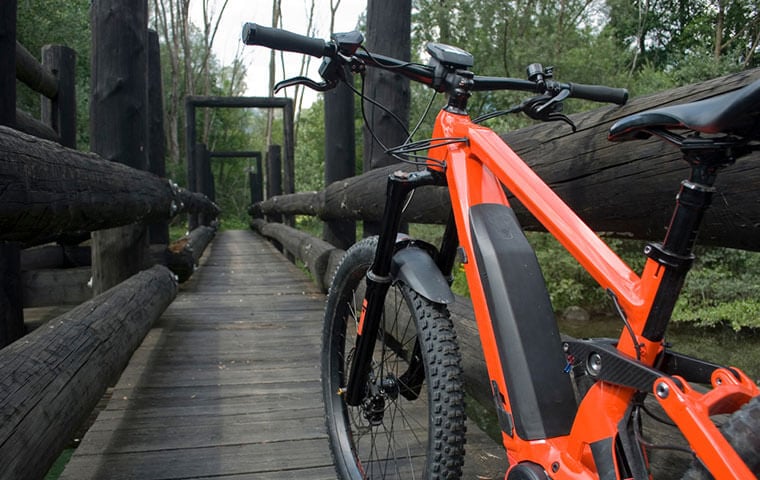 E-bikes have become a popular mode of recreation across the nation’s parks and present new management challenges. Image: angelaflu/Shutterstock.com
By: FEDweek Staff
E-bikes have become a popular mode of recreation across the nation’s parks and present new management challenges. Image: angelaflu/Shutterstock.com
By: FEDweek StaffThe growth in numbers and usage of electric bicycles, or e-bikes, poses challenges for federal agencies involved with land management, including “environmental and resource degradation, safety concerns, infrastructure needs, and equity and access needs,” says a report for Congress.
E-bikes “have become a popular mode of recreation across the nation’s parks, forests, and trails. Proponents of e-bikes see them as a way to increase access to and within these places, particularly for individuals who may otherwise not be able to bicycle owing to physical limitations, age, or other factors. At the same time, some have raised concerns regarding potential environmental and safety issues posed by the usage of e-bikes in areas intended for traditional, nonmotorized bicycles and/or pedestrians,” said the Congressional Research Service.
It said little study has been done of the ecological impact or disturbance to wildlife, while safety issues are better defined. They include for example an increase in the number and severity of collisions with walkers and the need for “more complex and dangerous search and rescue efforts” as e-bike users are able to go farther into remote areas.
“In addition, uncertainty around whether e-bikes should be classified and treated as traditional bicycles or as motorized vehicles has led to confusion among land managers and users alike,” it said.
It said for example that policies differ among the Interior Department’s subagencies although in general they exclude e-bikes from the definition of motorized or off-road vehicles for purposes such as usage on non-motorized trails. However, the Agriculture Department’s Forest Service defines them as a motorized vehicles and bars them from non-motorized trails unless certain exceptions apply.
It added: “As e-bike usage increases, consideration also may be given to whether or to what degree agencies should establish biking infrastructure within or around federal lands. This includes the potential addition of charging stations for e-bikes.”
Deferred Resignation Periods about to End for Many; Overall 12% Drop
Retirement Surge Likely as Deferred Resignation Periods End
Senate Rejects Bills to Defer Shutdown; Familiar Process Lies Just Ahead
Senate Bill Would Override Trump Orders against Unions
Report Describes Impact of Shutdown on Employees, Agencies
TSP Adds Detail to Upcoming Roth Conversion Feature
See also,
How to Handle Taxes Owed on TSP Roth Conversions? Use a Ladder
The Best Ages for Federal Employees to Retire
Best States to Retire for Federal Retirees: 2025

